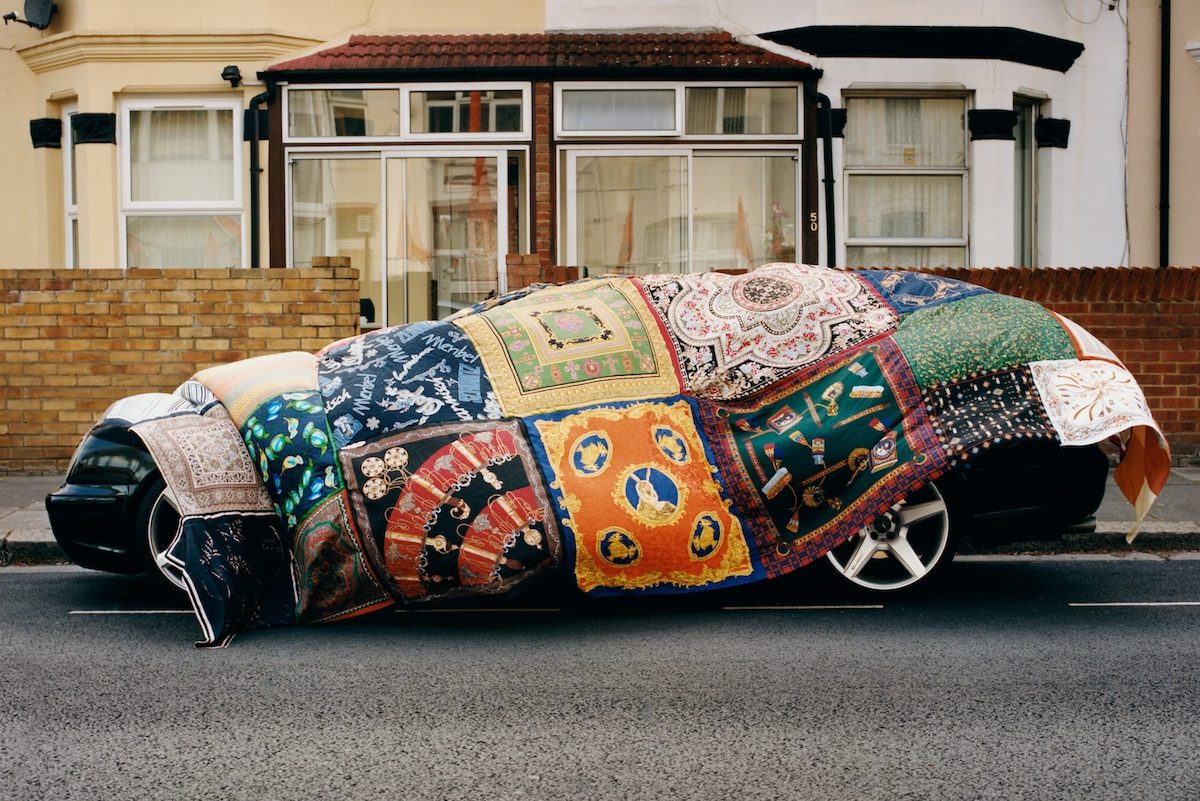The exploration of storytelling and the celebration of black joy through community and clothing: Priya Ahluwalia turns to film to capture the different heritages present in London
Ahluwalia’s Gucci Fest fashion film called Joy
«We are black, and we are proud to be here to stay» are the words of XX which echo over the scenes of him seated at a table explaining the cultural significance of Zimbabwe’s own version of Carnival. The pictures which follow show people, all of whom are black, speaking about their own Black experience which is spliced with images of families sharing food, people working out together, and women telling their stories. This is Ahluwalia’s Gucci Fest fashion film called Joy, made with film director Samona Olanipekun. It’s a celebration of ‘everyday beauty and strength of Black existence’ and features a cast of community leaders, steel band players, matriarchs, poets, and political activists. The story is tied together by Ahluwalia’s designs, which pay homage to the individual heritage of the people presented in the film. Gucci’s Alessandro Michele decided to set up a virtual stage on which various designers and creatives have told stories mattering to them. Michele says «I have always thought about the power of the stories, about the nourishment they offer not to surrender to the sleep of language, about their ability to expand our own possibility to think about who we are. We are the stories we tell ourselves, in the end». One of these stories is Joy, a film created by Priya Ahluwalia, that features a cast dressed exclusively in Ahluwalia’s designs. Priya is a British designer who explores the potential of dead stock clothing and vintage by giving existing textiles and techniques a new life. She graduated with an MA in menswear from The University of Westminster. Ahluwalia won the H&M Design Award and is one of eight brands to win the LVMH Prize in 2020. When asked why the name Joy, Ahluwalia answered: «the cast includes people who were involved in the Black Civil Rights Movement in the UK and fought for justice and fair treatment for black people. That was a struggle, and the film is about what has come out of those struggles».

Lampoon review: the tenet of generations and heritage
Each person has subtle individual touches within their clothing to symbolize personal stories. «Getting to know each one involved in the film to sew in sentimental details within the threads of each piece. Ashanti gave us an old photo of his mum. We took it and turned it into an artwork which we printed onto his outfit. Some people had direct graphics inspired by their life and family things». Another example is a mother and daughter standing abreast, wearing matching tailored suits while discussing their past. «I designed their matching suits because the mom showed me a lot of photographs from the past where her mother and father used to wear matching suits together when they used to go out. That was a family history». Ahluwalia was focused on storytelling and ensuring that she did the people justice by telling their stories. «I was thinking about a 360° type of approach. Whether it was sound or color and how that could be portrayed on film». Ahluwalia wants to celebrate people from backgrounds similar to hers, that don’t’ always get celebrated. This theme is apparent in Joy, as she found that the medium of film functioned as just another means of storytelling. «My film includes people of all ages, from a baby to someone in their eighties. All sizes too».
Priya Ahluwalia celebrating her Nigerian-Indian heritage and London roots
«That’s how I was able to realize Joy, because it includes most people from my network. My best friend’s family is in the scene shot in a house. The film enabled me to tap into who I knew in London». Ahluwalia speaks about the formative experience of deciding to go to a predominantly black college at age sixteen. «When I went to college, I started having the confidence to be myself, to talk about my culture, and to feel at home basically. Throughout my whole childhood up until my adulthood, I have been close to my mum. That’s because she encouraged us to have a close relationship, almost a friendship. It affects my work because I include her a lot of the time. I think about my mum all the time in general». This sentimental quality is manifest in the film, as Joy captures the intimate moments of families in London as well as their relationships with one another, whether it is mother and daughter, father and son, husband and wife, or friends. Ahluwalia’s film and her designs show her multicultural perspective, present in everything she does. She intends on continuing in the storytelling and highlighting the joy which can arrive after suffering: «We will continue to enjoy, we will not die young».
Priya Ahluwalia
Designer and founder of menswear brand Ahluwalia, draws inspiration from her Indian-Nigerian heritage by repurposing vintage materials in factories that employ rural women and pay them fairly.



















